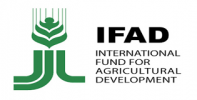A new report by the International Fund for Agricultural Development (IFAD) shows that sustainable investment in freshwater ecosystems in developing countries helps farmers reduce the impact from floods, droughts and water pollution. The report is released on World Water Day 2018.
The Water Advantage: Seeking Sustainable Solutions for Water Stress, which draws evidence from a review of IFAD-supported projects in six countries, shows that sustainable solutions such as drip irrigation, rainwater harvesting and saltwater tolerant crops will go a long way to protecting the livelihoods of smallholder farmers and food security for millions of people around the world.
“For smallholder farmers in developing countries, water is the difference between a decent life or poverty, hunger and malnutrition,” said Gilbert F. Houngbo IFAD President and Chair of UN-Water. “This precious resource is under stress with a massive potential impact on the livelihoods of poor rural communities.”
“With more than a billion people living in water-scarce regions, and as many as 3.5 billion facing water scarcity by 2025, IFAD is ready to help farmers secure the freshwater resources that represent a fundamental input for agriculture and the well-being of rural communities,” said Margarita Astralaga, Director of IFAD’s Environment and Climate Division.
The report shows, that by improving access to clean water and helping farmers manage water resources more effectively communities are more resilient to climate change and environmental shocks.
In Bangladesh IFAD is working with villagers to protect them from flash floods. While in Malawi and Brazil medium sized irrigation systems have been put in place for smallholder farmers to help them deal with water scarcity.
Also IFAD’s Adaptation for Smallholder Agriculture Programme (ASAP) works to increase the availability of water and efficiency of water use for smallholder farmers. It now has 14 projects contributing directly to this and ASAP is set to exceed the target of 100,000 households with improved access to water by 2020.
“IFAD is focussing on how to scale up its water-related investments as part of the drive to deliver on Agenda 2030 and IFAD’s related goal of inclusive and sustainable rural development,” added Houngbo. “One way forward is to keep up IFAD’s intensive engagement in policy dialogue on water issues at the international, regional and national levels as it seeks to shape policies on food security and integrated water resource management.”
Results in 2017 included 135,394 hectares managed with practices to improve soil fertility and soil/water conservation, 21,404 hectares recovered through soil and water conservation practices, 650 micro-watershed management plans prepared, 650 community watershed committees and 4,462 members of watershed committees established, and 2,166 members of committees trained in watershed management techniques.

